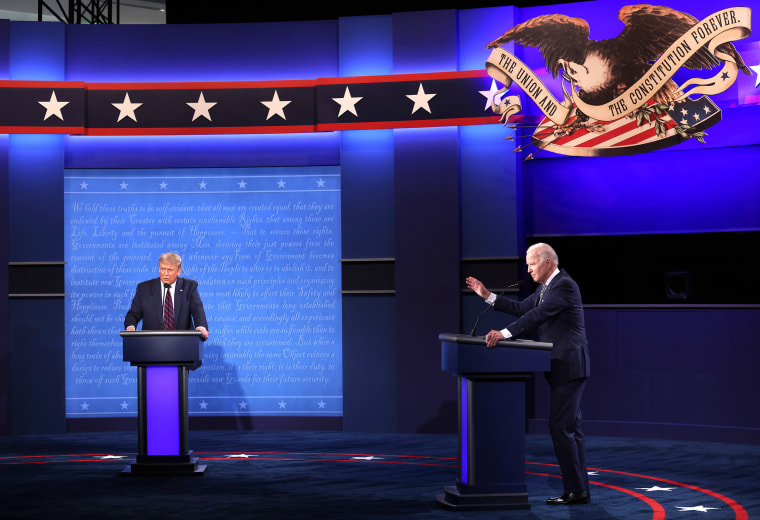Most objective observers would probably agree that Tuesday night's presidential debate did not go well. As Donald Trump ignored the rules his own campaign had previously committed to, many were left wondering whether to simply forgo the remaining events, rather than let an unhinged president continue to make a mockery of the institution.
The non-partisan Commission on Presidential Debates clearly hopes to salvage the process, announcing yesterday afternoon that it's considering changes intended to bring some semblance of order to this week's chaos.
"Last night's debate made clear that additional structure should be added to the format of the remaining debates to ensure a more orderly discussion of the issues," the CPD said in a statement. "The CPD will be carefully considering the changes that it will adopt and will announce those measures shortly."
In case this isn't obvious, meaningful "changes" to the structure and mechanics of the events are effectively unprecedented. Ordinarily, the terms of the debates are negotiated weeks in advance, agreed to by the commission and the campaigns, and followed during the events themselves.
But Trump was so out of control on Tuesday night, and so indifferent to limits and the debate's structure, that commission members are suddenly looking for ways to prevent future disasters.
NBC News' report added, "It is unclear exactly what changes the CPD will propose, but a source close to the commission said it was considering the ability to cut off a candidate's microphone when the rules are violated."
Team Trump apparently wasn't pleased. Tim Murtaugh, a spokesperson for the president's re-election campaign, told Axios, "They're only doing this because their guy got pummeled last night. President Trump was the dominant force and now Joe Biden is trying to work the refs. They shouldn't be moving the goalposts and changing the rules in the middle of the game."
In other words, as far as the Trump campaign is concerned, (a) the non-partisan Commission on Presidential Debates is secretly in league with Biden; (b) Trump won the debate; (c) Biden is driving the Commission's possible changes; and (d) the president should be allowed to ignore debate rules without interference or consequence.
Great.
In practical terms, the entire process is a partnership of sorts, with the non-partisan leadership of the commission and the major-party campaigns striking a deal and pledging to honor its terms. The problem in 2020, of course, is that Donald Trump doesn't think rules apply to him.
All of which leaves us with a few possible outcomes. Maybe, for example, the president will be on his best behavior in the coming debates, there will be a serious discussion about the challenges facing the nation, and voters will benefit from a spirited and serious civic discourse. (I'm not saying this is likely; I'm merely pointing to this as a remote possibility.)
Alternatively, it's possible Team Trump will agree to the changes the Commission on Presidential Debates has in mind, and the president will continue to ignore constraints he doesn't like.
But let's not discount the possibility that the president's political operation, having already accused the Commission of secretly supporting Biden, will balk at any new changes to the existing rules and simply withdraw from the process altogether, deeming it "rigged."
The next presidential debate is currently scheduled for Oct. 15 in Miami. Watch this space.

